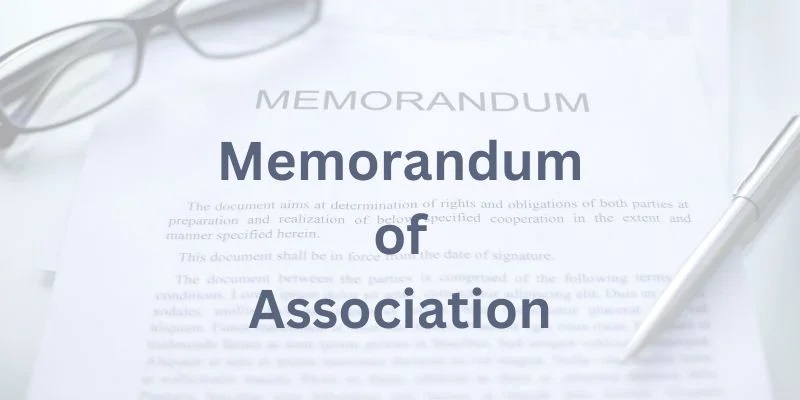The Corporate Affairs Commission (CAC) has introduced a groundbreaking feature in its system: the issuance of e-certificates. This innovative step replaces the traditional manual process, allowing customers to obtain their registration and incorporation certificates conveniently online.
Introduction of e-Certificate by the Corporate Affairs Commission (CAC)
This blog will explore the introduction of e-certificates by CAC, their benefits, the implementation process, and its impact on businesses in Nigeria.
What is the CAC e-Certificate?
The CAC e-Certificate or electronic certificate is a digital version of the certificate of incorporation or registration issued by the Corporate Affairs Commission to newly registered companies and businesses. This electronic document serves the same purpose as the physical certificate, confirming the legal existence of a business entity under Nigerian law.
Unlike traditional paper certificates, which required physical handling, courier services, or in-person collection, the e-certificate is entirely digital. It can be downloaded, stored, and shared electronically, making it more convenient and accessible to business owners.
These digital documents are legally valid and bear the digital signature of the Registrar-General of CAC, ensuring their authenticity and official status.

How the E-Certificate Works
With the new system, once your registration is approved by the CAC, the certificate is automatically generated and added to your dashboard.
You can then download and print it at your convenience. This eliminates the need to visit CAC offices, making the process more efficient and user-friendly.
Notable Changes in the New E-Certificate
Several changes have been made to the design and content of the certificates:
- Nigerian Coat of Arms: The top of the certificate now features the Nigerian Coat of Arms, replacing the former CAC logo.
- CAC Seal: The CAC logo has been moved to the bottom of the certificate, serving as a seal.
- Simplified Certificates for Incorporated Trustees: Notes and cautions have been removed from certificates for Incorporated Trustees.
CAC's Transition to E-Certificates
The transition to e-certificates is part of the CAC’s implementation of the new Companies and Allied Matters Act (CAMA) 2020. According to the Registrar General and CEO of the CAC, this shift aligns with data privacy policies and enhances security through the use of QR codes on the certificates.
Additionally, the CAC will cease issuing paper documents, including Certified True Copies (CTCs). Instead, they will provide certified extracts of company data electronically.
Catalyst for Change
The introduction of e-certificates is part of a broader initiative to digitize government services in Nigeria. This move was accelerated by:
- The global trend towards digital transformation
- The need to improve Nigeria's ranking in the World Bank's Ease of Doing Business Index
- The challenges posed by the COVID-19 pandemic highlighted the importance of remote and contactless services.
Key Features of CAC E-Certificates
The transition to e-certificates is part of the CAC’s implementation of the new Companies and Allied Matters Act (CAMA) 2020. According to the Registrar General and CEO of the CAC, this shift aligns with data privacy policies and enhances security through the use of QR codes on the certificates.
Additionally, the CAC will cease issuing paper documents, including Certified True Copies (CTCs). Instead, they will provide certified extracts of company data electronically.
Catalyst for Change
The introduction of e-certificates is part of a broader initiative to digitize government services in Nigeria. This move was accelerated by:
- The global trend towards digital transformation
- The need to improve Nigeria's ranking in the World Bank's Ease of Doing Business Index
- The challenges posed by the COVID-19 pandemic highlighted the importance of remote and contactless services.
Benefits of the E-Certificate System
The introduction of e-certificates by CAC offers numerous advantages:
- Reduced Processing Time: E-certificates are generated instantly, eliminating the wait times associated with physical certificate production and delivery.
- Cost-Effective: The digital nature of e-certificates eliminates printing and postage costs, potentially reducing business fees.
- Enhanced Security: Digital signatures and QR codes make e-certificates more secure and harder to forge than paper certificates.
- Convenience: Business owners can access their certificates anytime, anywhere, without the risk of physical documents being lost or damaged.
- Improved Verification Process: Government agencies and third parties can quickly verify the authenticity of e-certificates online.
- Streamlined Record-Keeping: Digital certificates simplify record-keeping for both businesses and CAC.
Impact of E-Certificate on Nigerian Businesses
The introduction of e-certificates is expected to have a lasting positive impact on businesses in Nigeria. By facilitating faster business registration, reducing costs, and promoting transparency, the e-certificate system enhances Nigeria’s overall business environment. This, in turn, improves the country's ranking in global indices for ease of doing business.
Additionally, the digitalization of business certificates is expected to encourage more entrepreneurs to formalize their businesses. Many small businesses in Nigeria operate informally, largely due to the perceived complexity of the registration process.
With the streamlined process offered by the e-certificate system, more business owners may be encouraged to register, thereby benefiting from the protections and opportunities associated with formal registration.
Additional Features Introduced by the CAC
- Electronic Signatures and Photographs: Applicants can upload electronic signatures and passport photographs directly, eliminating the need to print, sign, and scan documents.
- E-Status Report: Replacing traditional CAC forms, the e-status report now serves as the standard document issued upon registration or incorporation. It replaces Form CAC 1.1 for company registration, BN 1 for business name registration, and IT Form 1 for Incorporated Trustees.
- EDMS (Electronic Document Management System): This system manages and stores digital documents, reducing paperwork and centralizing document storage.
Conclusion
Understanding these distinctions helps ensure that you choose the correct registration type for your business, aligning with legal requirements and your business goals.
For professional assistance in registering your business, whether as a sole proprietorship, partnership, or limited liability company, consult with accredited CAC consultants to streamline the process and ensure compliance with all legal requirements.



